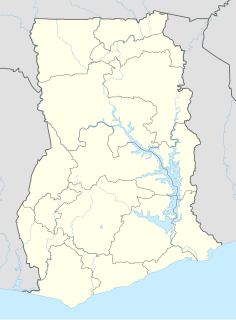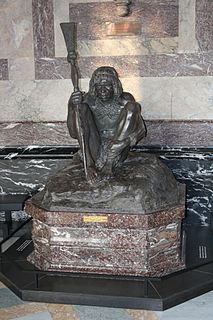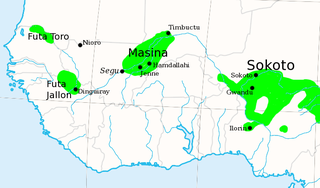
The U.S. Chess Championship is an invitational tournament held to determine the national chess champion of the United States. Begun as a challenge match in 1845, the U.S. Championship has been decided by tournament play for most of its long history. Since 1936, it has been held under the auspices of the U.S. Chess Federation. Until 1999, the event consisted of a round-robin tournament of varying size. From 1999 to 2006, the Championship was sponsored and organized by the Seattle Chess Foundation as a large Swiss system tournament. AF4C withdrew its sponsorship in 2007. The 2007 and 2008 events were held in Stillwater, Oklahoma. The Chess Club and Scholastic Center of Saint Louis in St. Louis has hosted the annual event since 2009.

The Rhodesian Front was a conservative political party in Rhodesia when the country was under white minority rule. Led first by Winston Field, and, from 1964, by Ian Smith, the Rhodesian Front was the successor to the Dominion Party, which was the main opposition party in Southern Rhodesia during the Federation period. The RF was formed in March 1962 by whites opposed to any immediate or short-term transition to black majority rule. It won power in the general election that December. In successive elections between 1964 and 1979, the RF was returned to office, with a large majority, with Smith as Prime Minister.
Bonifacio Ondó Edú-Aguong was the Prime Minister of Equatorial Guinea while it was still under Spanish colonial rule, as Spanish Guinea. Born into a privileged family, he took office when the country gained autonomy in 1963, and ran in the country's first presidential election in 1968, losing in the run-off. He handed power over to newly elected president Francisco Macías Nguema on 12 October 1968. He was imprisoned and officially committed suicide only a few months later. Another account says he returned in 1969 from exile in Gabon and was killed.

Sunni Ali, also known as The Giraffe, was born Ali Kolon. He reigned from about 1464 to 1492. Sunni Ali was the first king of the Songhai Empire, located in Africa and the 15th ruler of the Sunni dynasty. Under Sunni Ali's infantry and cavalry many cities were captured and then fortified, such as Timbuktu and Djenné. Sunni conducted a repressive policy against the scholars of Timbuktu, especially those of the Sankore region who were associated with the Tuareg whom Ali expelled to gain control of the town.
Abdullah Ibn-Mohammed Al-Khalifa or Abdullah al-Khalifa or Abdullahi al-Khalifa, also known as "The Khalifa" was a Sudanese Ansar ruler who was one of the principal followers of Muhammad Ahmad. Ahmad claimed to be the Mahdi, building up a large following. After his death Abdallahi ibn Muhammad took over the movement, adopting the title of Khalifat al-Mahdi. He attempted to create a kingdom, which led to widespread discontent, and his eventual defeat and death at the hands of the British.

The Imamate of Futa Toro (1776-1861) was a pre-colonial West African theocratic state of the Fula-speaking people centered on the middle valley of the Senegal River. The region is known as Futa Toro.
Eguguojo was the Alaafin of Oyo during the sixteenth century. It was during his reign that the capital city was moved from Oyo ile to Oyo Igboho, after a protracted battle with the Nupes and also as a result of internal fighting. Prior to the establishment of New Oyo, his grandfather had gone on an odyssey from Oyo ile to escape heat from palace officials. He was succeeded on the throne by his sister Orompoto.

Salaad Gabeyre Kediye, also known as Salah Gaveire Kedie, was a Somali senior military official and a revolutionary.

Lipschütz ulcer,ulcus vulvae acutum or reactive non-sexually related acute genital ulcers is a rare disease characterized by painful genital ulcers, fever, and lymphadenopathy, occurring most commonly, but not exclusively, in adolescents and young women. Previously, it was described as being more common in virgins. It is not a sexually transmitted disease, and is often misdiagnosed, sometimes as a symptom of Behçet's disease.
Sir Donald Charles Cameron, was a British colonial governor. He was the second governor of the British mandate of Tanganyika, and later the governor of Nigeria.
James "Holy" Johnson was a prominent clergyman and one of the first African members of Nigeria's Legislative Council.

Wobogo was the Mogho Naba (ruler) of Ouagadougou from 1890 to 1897, at the time of the French colonial conquest of Upper Volta. Wobogu was originally called Boukary Koutou, but dropped those names on his accession and assumed the name "Wobogu", meaning elephant.

Zongoiri Natinga is a community in the Bawku West District of the Upper East Region of Ghana, to the northwest of a bend in the White Volta River.
Na Gbewa is, traditionally, the founder of the Kingdom of Dagbon, in what is now northern Ghana. His sons and his daughters are credited with founding several states.
Mbololo was a Litunga (chief) of Makololo tribe, a successor of Liswaniso. He ruled 1863 - 1864. He was the last king of Makololo dynasty.

Sipopa Lutangu was the leader of the Lozi revolution and later a Litunga (king) of the Lozi people. He ruled 1864–1876.
Abdul Bokar Kan was the de facto ruler of the upper part of the Imamate of Futa Toro in the late nineteenth century. This included parts of what are now Mauritania and Senegal along both banks of the Senegal River. After his death, the French colonial powers took full control of the territory.
Umaru bin Ali (c.1824-1891) was Sultan of Sokoto from 3 October 1881 to 25 March 1891. He succeeded Sultan Mu'azu after the latter's death in September 1881. Ali was a great grandson of Uthman dan Fodio, grandson of Muhammed Bello and son of Aliyu Babba.
Sigujana kaSezangakhona was chief of the Zulu people in 1816. He was the son of Senzangakhona kaJama and half-brother of Dingane kaSenzangakhona and Shaka kaSenzangakhona. He succeeded his father c. 1816. His mother was Bhibhi kaSompisi. Shortly after he became chief, he was eliminated by his half-brother Shaka. It is disputed on whether Shaka had him assassinated, or if Shaka himself killed Sigujana by stabbing him. His birth date is unknown, but whatever the case he died in 1816, shortly after becoming chief.
The Dominion Party was a political party in the Federation of Rhodesia and Nyasaland, led by Winston Field.













